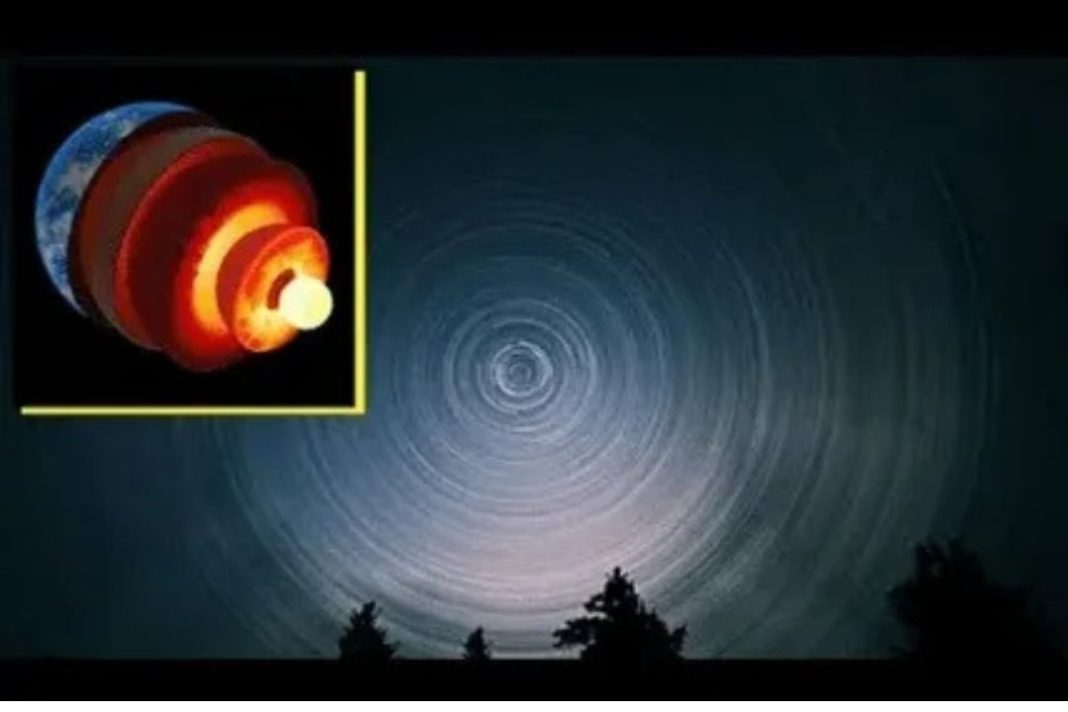Earth’s rotation is speeding up, and scientists are paying close attention to this change. For centuries, we believed Earth’s rotation was slowing down. But now, new observations show that Earth is spinning faster than before. This change is tiny in human terms, but it has big implications in science, technology, and timekeeping.
What Is Earth’s Rotation
To understand why Earth’s rotation is speeding up, we first need to know what Earth’s rotation means.
- Earth rotates on its axis, an imaginary line running through the North and South Poles.
- This rotation causes day and night. When your location faces the Sun, it is day. When it turns away, it becomes night.
- One full rotation of Earth takes 24 hours (actually, slightly less: about 23 hours, 56 minutes, and 4 seconds).
- This rotation speed is usually very steady, but it can change due to natural and environmental forces.
Earth’s Rotation Is Speeding Up: What Recent Discoveries Say
In recent years, scientists have recorded some of the shortest days ever measured. For example:
- On June 29, 2022, Earth completed a rotation 1.59 milliseconds faster than the standard 24 hours.
- Again on July 26, 2022, another record was broken with a day lasting 1.50 milliseconds less.
These tiny changes may not be noticeable to us, but they are very important for technology and global systems that rely on precise time.
Why Earth’s Rotation Is Speeding Up: Scientific Reasons
Scientists have suggested several possible explanations for why Earth’s rotation is speeding up. No single reason has been confirmed, but a combination of factors might be responsible.
1. Shifts in the Earth’s Core
The liquid iron core deep inside Earth might be moving slightly faster, creating a change in how the planet spins.
2. Melting of Polar Ice
Due to climate change, glaciers and polar ice caps are melting. As water flows to other parts of the planet, it redistributes Earth’s mass and can affect how Earth spins.
3. Earthquakes and Tectonic Movements
Massive earthquakes can shift land and redistribute weight. For instance, the 2011 Japan earthquake is believed to have made Earth spin a bit faster.
4. Atmospheric and Ocean Circulation
Changes in air pressure and ocean currents (like El Niño and La Niña) can also influence the rotation by shifting large masses around the planet.
How Do Scientists Know Earth’s Rotation Is Speeding Up
The fact that Earth’s rotation is speeding up is known thanks to very accurate scientific tools:
Atomic Clocks
- These clocks are so precise that they can measure time to a billionth of a second.
- They are used to measure exactly how long each day lasts.
Satellite Observations
- Satellites track Earth’s position and movements from space.
- They provide high-accuracy data for changes in Earth’s spin.
VLBI (Very Long Baseline Interferometry)
- This method uses a network of radio telescopes around the world.
- It helps detect tiny changes in Earth’s rotation by observing distant quasars.
Earth’s Rotation Is Speeding Up: What Are the Effects
The fact that Earth’s rotation is speeding up could have several effects. While we may not notice changes in our everyday routine, it could impact the systems we rely on.
1. Shorter Days
- Each day could be a few milliseconds shorter.
- Over time, this might affect how we measure time if the trend continues.
2. Need for Leap Seconds
- Usually, leap seconds are added to clocks to keep in sync with Earth’s slightly slower rotation.
- But now, a negative leap second might be required for the first time in history—removing a second from atomic time.
3. Technological Impact
- Systems like GPS, financial markets, telecommunication networks, and air traffic control depend on precise time.
- Even a 1-millisecond shift can cause glitches if not corrected.
4. Impact on Satellites and Orbits
- Faster rotation might very slightly change Earth’s shape, making it bulge more at the equator.
- This could affect satellite orbits and space missions that need precise calculations.
What Is a Negative Leap Second
A leap second is added or removed to keep atomic time (based on Earth’s rotation) in sync with Coordinated Universal Time (UTC).
- Until now, leap seconds were only added because Earth was slowing down.
- Now, since Earth’s rotation is speeding up, a negative leap second might be needed.
- This would involve skipping one second to adjust the atomic clocks.
No one knows for sure what will happen when this is done, as it’s never been tried before. It could affect computer systems that aren’t designed to handle negative leap seconds.
Will Earth’s Rotation Keep Speeding Up
The speed at which Earth spins is affected by natural and unpredictable events. It might:
- Keep speeding up due to current environmental changes
- Return to normal speed or even slow down again, depending on how Earth’s systems behave
Scientists are closely monitoring the situation using global data, and new patterns are being studied every year.
Earth’s Rotation Is Speeding Up: What It Teaches Us
This event shows us that Earth is not a perfect machine. It changes with time due to many forces, such as:
- Inner core movement
- Environmental changes
- Human activity (like climate change)
It also teaches us how interconnected everything is—climate, oceans, land, and the core—all play a role in how Earth behaves.
Conclusion: Earth’s Rotation Is Speeding Up and We’re Learning from It
In conclusion, Earth’s rotation is speeding up is more than just a strange scientific fact. It is a powerful reminder that our planet is alive, dynamic, and constantly changing.
While this change is not dangerous or alarming for now, it helps scientists:
- Understand more about Earth’s internal and external systems
- Improve timekeeping and navigation
- Prepare for future adjustments in technology and scientific models
Whether you are a young student or an adult, understanding this phenomenon helps us appreciate the wonders of our Earth even more.



